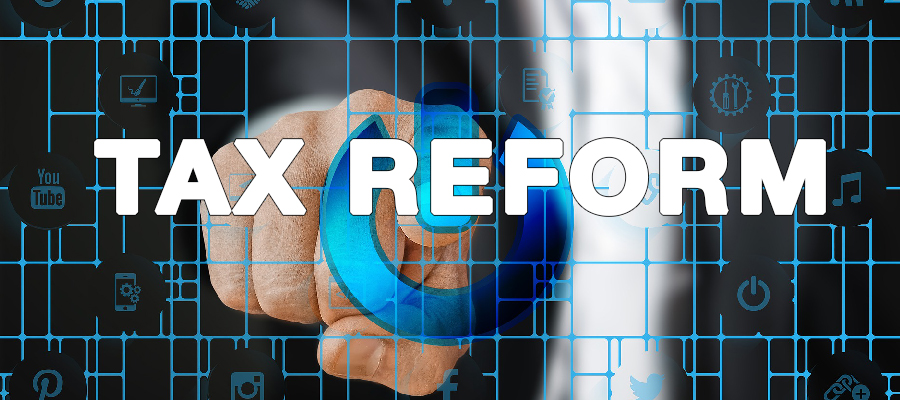Running Out Of Time? Extension Available For January 31st Filing Deadline For Businesses To File All W-2’s And 1099’s
To expedite IRS’ ability to match up W-2’s and 1099’s reported by businesses to the income reported on taxpayers’ tax returns, all these forms must be submitted to IRS and given to taxpayers no later than January 31st. This filing deadline was made uniform under The Protecting Americans from Tax Hikes (PATH) Act. Prior law required that only W-2’s had to be provided to employees no later than January 31st with all other reporting forms (including the copies to IRS) due by the end of February. Failure to file these forms correctly and timely may result in penalties to the employer or payor.
30-Day Extension To File Is Available
An automatic extension is 30 days from the original filing due date of January 31, 2018 by submitting Form 8809, Application for Extension of Time To File Information Returns. If you receive an automatic extension, you may request one additional extension of not more than 30 days by submitting a second Form 8809 before the end of the first extension period but only one extension of time to file Form W-2 is available. Requests for additional extensions of time to file information returns, and requests for extensions of time to file Form W-2, are not automatically granted. Such requests are granted only if you meet one of the following criteria: (1) The business suffered a catastrophic event in a Presidentially Declared Disaster Area that made the business unable to resume operations or made necessary records unavailable; (2) Fire, casualty, or natural disaster affected the operation of the business; (3) Death, serious illness, or unavoidable absence of the individual responsible for filing the information returns affected the operation of the business; or (4) The business was in its first year of establishment. Failing to file timely will result in the IRS assessing hefty penalties against the employer/payor.
Extension Does Not Effect Deadline For Distributing Statements To Employees/Recipients
The extension of time to file and any approved requests for additional time will only extend the due date for filing the information returns with the IRS. They do not extend the January 31, 2018 due date for furnishing statements to recipients.
Earlier Date Means More IRS Audit Notices Issued Sooner
According to IRS estimates, in a calendar year employers, businesses, financial institutions, credit card companies and other third party payers will file 2.3 billion information statements. These information statements report income and financial transactions, and can help individuals and businesses prepare accurate tax returns. Using information-matching programs, the IRS compares third-party information statements with taxpayer data, and sends a notice to taxpayers when IRS systems detect inconsistencies.
Individual Automated Underreporter (AUR) Program
This matching program is better known by its primary notice: CP2000, Notice of Proposed Adjustment for Underpayment/Overpayment. IRS systems automatically send this notice when items reported on Form 1040, U.S. Individual Income Tax Return, don’t match information reported to the IRS by employers and other payers. The first round of these notices arrives just after Thanksgiving, and the second round arrives toward the end of the next year’s filing season.
The CP2000 notice has been a mainstay of IRS information reporting for decades. In 2012, the IRS issued more than 4.5 million CP2000 notices, with an average of $1,572 in additional taxes owed.
Form 1099-K merchant card transaction matching program
In 2012, the IRS started receiving from credit card companies, Forms 1099-K, Payment Card and Third Party Network Transactions. With merchant card transactions now being reported to IRS, the IRS quickly began using this information to match against business returns. However, because businesses do not specifically report merchant card transactions as separate line items on business tax returns, the IRS can only infer potential underreporting. For example, if a business has a disproportionate amount of cash to credit/debit card sales, based on its line of business, the IRS may look closer. These kinds of mismatches have led the IRS to develop compliance initiatives, including “soft” notices requesting explanation and mail audits requesting documentation.
The IRS has established a Form 1099-K matching initiative that makes the IRS more efficient in identifying problem tax returns especially where merchant card payments appear to make up the majority or even exceed the total business receipts reported on the return. In these cases, the IRS perceives that the business is underreporting cash sales due to the disproportionate share of merchant card payments. Accrual-basis taxpayers and e-commerce businesses whose receipts do not neatly match merchant card transactions are likely early targets in this program and we have had our share of these cases where that is what happened.
Automated Substitute For Return Program
When a taxpayer does not file and the IRS has information statements indicating a filing requirement, the IRS uses the data to file a return on behalf of the taxpayer if there is a projected balance owed. In 2012, the IRS used information statements to file 803,000 returns for taxpayers, totaling $6.7 billion in additional taxes owed. And the sad thing about this is in just about every case, the amount actually owed when a tax return is filed by the taxpayer is much lower than what the IRS says a non-filer taxpayer owes. We even had cases where the IRS ended up owing our clients money.
The Stakes Are High!
A recent U.S. Government Accountability Office study showed that the IRS spends $267 million on underreporter matching programs, compared with the $4.2 billion it spends on audits. But automated information-matching programs return almost six times more revenue than audits. You can see why with fewer IRS agents and reduced budgets, the IRS will increasingly rely on technology-driven matching programs to bring in more tax dollars.
What Should You Do?
So if you receive one of these audit notices it is important that you don’t ignore it. Protect yourself from excessive fines and possible jail time. Let the tax attorneys of the Law Offices Of Jeffrey B. Kahn, P.C. located in Orange County (Irvine), San Diego County (Carlsbad) and elsewhere in California defend you from the IRS.










 Follow
Follow Follow
Follow